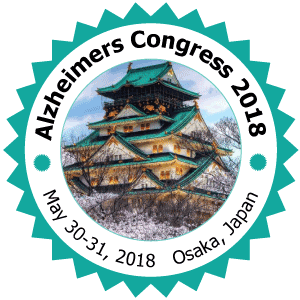
Yuqiu Zheng
Sun Yat-sen Memorial Hospital, China
Title: Neurotropin Inhibits neuroinflammation via suppressing NF-κB and MAPKs signaling pathways in lipopolysaccharide-stimulated BV2 cells
Biography
Biography: Yuqiu Zheng
Abstract
Neuroinflammtion plays an important role in several neurological diseases, especially in Alzheimer’s disease (AD). Neurotropin (NTP) is a widely used drug in China and Japan mainly for the treatment of chronic pain and peripheral inflammation and previous studies have indicated that NTP could improve cognitive impairment in APP/PS1 mice by stimulating the production of BDNF and suppressing the oxidative stress. Nevertheless, the effects of NTP on neuroinflammation have not been explored. In this study, we investigated the anti-inflammatory effects of NTP in lipopolysaccharide (LPS)-stimulated BV-2 microglial cells and its underlying mechanisms. BV-2 cells were pretreated with NTP for 12 h before exposure to LPS. The expression of pro-inflammatory cytokines (TNF-α and IL-6) were detected by RT-PCR and EILSA at mRNA and protein levels, respectively. Western blotting was conducted to measure the protein levels of major genes in MAPKs and NF-κB signaling pathways. Results demonstrated that NTP could attenuate the production of pro-inflammatory cytokines. Furthermore, NTP inhibited the activation of NF-κB signaling by decreasing the translocation of NF-κB p65 to the nucleus and suppressed the MAPKs signaling pathway via inhibition of the phosphorylation of p38, ERK and JNK. Taken together, these findings suggest that neurotropin exerts anti-inflammatory effects by suppressing the production of pro-inflammatory mediators via inhibition of NF-κB and MAPKs signaling pathways in LPS-stimulated BV-2 cells, indicating that NTP might be a potential choice for the treatment of neuroinflammation.

